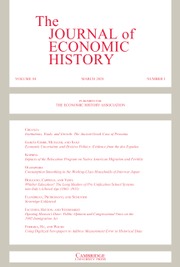Reshaping Capitalism in Weimar and Nazi Germany
In Weimar and Nazi Germany, capitalism was hotly contested, discreetly practiced, and politically regulated. This volume shows how it adapted to fit a nation undergoing drastic changes following World War I. Through wide-ranging cultural histories, a transatlantic cast of historians probes the ways contemporaries debated, concealed, promoted, and racialized capitalism. They show how bankers and industrialists, storeowners and commercial designers, intellectuals and politicians reshaped a controversial economic order at a time of fundamental uncertainty and drastic rupture. The book thus sheds fresh light on the strategies used by Hitler and his followers to gain and maintain widespread support. The authors conclude that National Socialism succeeded in mobilizing capitalism's energies while at the same time claiming to have overcome a system they identified with pernicious Jewish influences. In so doing, the volume also speaks to the broader issue of how capitalism can adapt to new times.
- Brings together an international and distinguished collections of experts in the history of Weimar and Nazi Germany
- Bridges the gap between economic and business history and cultural and social history
- Expands the debate on continuity and change between the Weimar Republic and the Third Reich
Reviews & endorsements
‘This pioneering collection sheds new light on how capitalism was lived, critiqued and imagined in this crucial period of German history, bringing social and cultural histories into dialogue with the politics and practices of business life to great effect.’ Neil Gregor, University of Southampton, author of Daimler-Benz in the Third Reich
‘None are so proficient at practicing capitalism yet as fiercely critical of it than the Germans. Reshaping Capitalism approaches the protean nature of commercial activity and the changing attitudes of Germans toward it from wholly new perspectives. This valuable collection forms an indispensable guide to market failure, cultural condemnation of capitalist excess, and the use of racism to legitimate plunder in a Germany poised between democracy and dictatorship.’ Jonathan Zatlin, Boston University
‘Showing the multiple challenges of the interwar economy at work in studies of the individual and corporate actors who had to respond to them, these chapters give life and breath to the familiar diagnosis of a crisis of capitalism and add new terms to the debate about continuity and change in 20th-century Germany.’ Eve Rosenhaft, University of Liverpool
‘Within the recent rise of a 'new history of capitalism', studies of both the Weimar Republic and the Nazi regime have been surprisingly absent. This volume, edited by Moritz Föllmer and Pamela E. Swett, thus clearly fills a gap. Beyond that, it adds relevant findings to the current rediscovery of the interwar years as an epoch comparable to our own times.’ Stefanie Middendorf, German History
‘[An essential reference point for scholarship on capitalism in twentieth-century Germany for years to come.’ Paul Lerner, German Studies Review
‘If you look at the book, which emerged from a workshop at the DHI Washington, as a whole, you can see its special achievement: the creation of a high degree of coherence despite all thematic diversity.’ Jürgen Kocka, Historische Zeitschrift
‘The importance of this collection is the imitable way in which the history of the twentieth century is thought of together with the economic system that has emerged unscathed from every war for centuries, with or without an adapted cultural shell.’ David Hollanders, TSEG - The Low Countries Journal of Social and Economic History
Product details
May 2024Paperback
9781108984775
326 pages
229 × 152 × 18 mm
0.476kg
Available
Table of Contents
- Introduction: Historicizing capitalism in Germany, 1918–1945 Moritz Föllmer and Pamela E. Swett
- Part I. Debating capitalism:
- 1. Capitalism and agency in interwar Germany Moritz Föllmer
- 2. Aporias of 'political capitalism' between World War One and the Depression Martin H. Geyer
- 3. Searching for order: German jurists debate economic power, 1919–1949 Kim Christian Priemel
- Part II. Concealing capitalism:
- 4. Capitalism, wealth, and the question of (in)visibility: The Thyssen family and its investments Simone Derix
- 5. Semantics of success: The cases of Friedrich Flick and Henry J. Kaiser Tim Schanetzky
- 6. Hamburg coffee importers: From guild to class, 1900s–1960s Dorothee Wierling
- Part III. Promoting capitalism:
- 7. Between criticism and innovation: Beer and public relations in the Weimar Republic Sina Fabian
- 8. Managing consumer capitalism: Artists, engineers, and psychologists as new marketing experts in interwar Germany Jan Logemann
- 9. A society safe for capitalism: Violent crowds, tumult laws, and the costs of doing business in Germany, 1918–1945 Molly Loberg
- Part IV. Racializing capitalism:
- 10. Völkisch banking? Capitalism and Stuttgart's savings banks, 1933–1945 Pamela E. Swett
- 11. Völkisch capitalism: Himmler's bankers and the continuity of capitalist thinking and practice in Germany Alexa Stiller.







